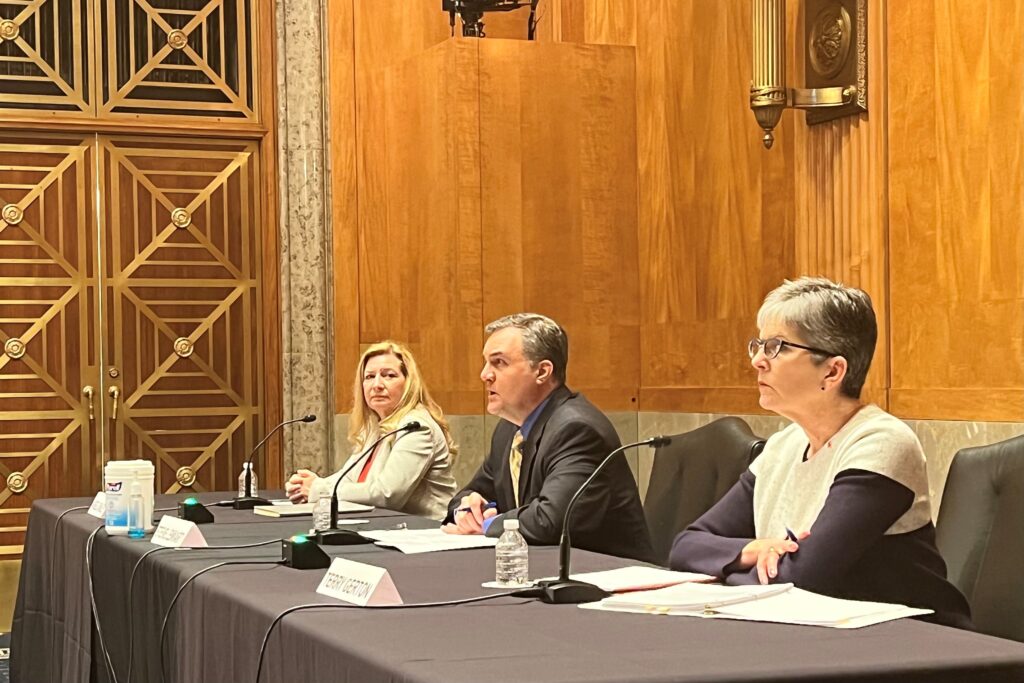
Washington, D.C. – Today, National Federation of Federal Employees (NFFE) Executive Director Steve Lenkart testified in a Senate hearing to promote Merit Systems Principles and caution lawmakers of corruption from political appointees. The purpose of the hearing was to review the success and gaps in the Chief Human Capital Officers (CHCO) Act of 2002, which has now been implemented for 20 years. Discussed were topics such as the proper relationship between OPM and agency CHCOs, if CHCOs have enough authority and flexibility to do their jobs, and how CHCOs can improve human capital to help agencies achieve their missions.
“Today’s hearing presented an opportunity to stress the importance of maintaining Merit System Principles as they are written in the law, and how these principles do not interfere with progress,” said NFFE Executive Director Steve Lenkart. “When we blame merit principles for suspending progress, we are really lying to ourselves instead of being more innovative. In reality, we need to be better and not backtrack on the rules that keep us honest.”
“Only dark money hacks and their funders complain about merit principles because they interfere with their mission to impart undue influence and corruption,” continued Lenkart. “There are a handful of people that pose serious threats to our democracy, who wish to corrupt government and skirt laws for a variety of reasons, all based on personal gain. We must end the ‘secret workforce within the workforce’ through the hiring of more career leaders, while minimizing the influence of political appointees by holding them to the same standards as career employees.”
“We are grateful the subcommittee invited NFFE to provide input on such an important issue to the function of the government,” said NFFE National President Randy Erwin. “It was encouraging to see bipartisan support for the federal Merit Systems Principles at today’s hearing. These principles are critical to continuing the prosperity of American democracy and we look forward to working with Congress to ensure that they are upheld.”
